We hear in our ears, but we process and understand sound in our brain. Hearing aids can help a person detect sounds that are no longer in their range of audibility, but they don’t necessarily provide good listening skills.
There is a fundamental difference between hearing and listening, and hearing devices alone do not assure good listening. We all know people who have normal hearing but are poor listeners (OK, OK, don’t reference your spouse’s selective hearing!). Hearing requires a functional auditory system that allows sound to be heard, listening requires specific effort and skill, and that can become more difficult when a hearing loss is present.
As technically advanced as modern hearing aids might be, these devices alone cannot ensure listening skills needed for communication. Listening integrates a number of skills including attending, understanding, and remembering. Unfortunately, many of these cognitive skills deteriorate as we age. This may show up as a worsening of short-term memory or an increasing difficulty understanding rapid speech. Modern hearing aids have certainly improved the quality of sound in noisy environments, but they do not eliminate background sounds. People with sensorineural hearing loss have disproportionately difficult time understanding speech in noise. In addition, research shows that a loss of hearing produces physical changes in the auditory pathways of the brain. We now know that when hearing loss deprives parts of the brain of auditory stimulation, neural pathways actually degrade. The old adage of “use it or lose it” is very true with regard to hearing loss — waiting to get hearing aids when you know you have hearing loss is problematic because your brain might not be receiving the kind of stimulation it needs to maintain speech understanding.
When people lose confidence in their ability to communicate in noisy social situations, they simply drop out and avoid those environments. While this may save them effort and embarrassment, it ultimately costs them important personal and social contact. Some individuals utilize compensatory strategies that may result in successful hearing aid use. Others, however, are not so fortunate. The need for additional therapy beyond that provided by devices alone is becoming increasingly evident, and is underscored by the fact that individuals with similar hearing loss frequently report a wide range in satisfaction and benefit from their hearing aids.
The good news is a that board certified audiologist can optimize your hearing aid hearing experience using a number of methods, strategies and techniques. The hearing healthcare professionals at Doctors Hearing Clinic specialize in developing individualized treatment plans for those struggling with hearing impairment, and they can offer the very latest in technologies, as well as the time required to successfully implement them! Have realistic expectations for hearing aids — they’re wonderful devices, but not new ears.
Join a self-help group to share methods and techniques that are successful for you and others. (Montgomery has a Hearing Loss Support Group that meets the second Thursday of each month at the First Methodist Church, 4pm, free of charge!) And consider new computer software to train your brain to listen more effectively!
The great news is that with the help of a skilled Audiologist who routinely offers programs in aural rehabilitation, you or your loved ones can keep listening skills from deteriorating and improve ability to function in noisy situations. When a person injures an arm or leg, everyone recognizes the importance of physical therapy to strengthen adjacent muscles and instruction to optimize function. Similarly, it is likely that hearing devices alone will not produce optimal communication skills unless accompanied by counseling and training.
There are many exercises you can try on your own. Here are three examples:
• Use closed captioning TV, or record programs using a DVR or TiVo. Watch the show live, then replay it with closed captioning or by slowing it down.
• Listen to, while reading, audio books.
• Buy two copies of the newspaper. Have your spouse or colleague read the newspaper aloud while you are listening only, and then go ahead and read it yourself. Try this in quiet at first, and then proceed to noisier listening environments.
• Try self-help computer assisted training programs
One such auditory training therapy program designed to help the brain listen, Listening and Communication Enhancement (LACE) uses a computer or DVD. LACE is designed to enhance listening and communication skills, improve confidence levels, and provide communication strategies. The program consists of a variety of interactive and adaptive training tasks for listening to speech in noise, rapid speech, and auditory memory. Besides the immediate feedback given for each task, LACE provides you with a graph depicting daily improvement from the start of the training.
LACE training is conducted in the privacy of your own home at a pace comfortable to you; Doctors Hearing Clinic also offers a computer lab where you can take all or part of the training in their office. Research on thousands of people with hearing loss demonstrates that you can expect on average a 40% improvement of speech comprehension in noisy situations, if you complete the training program.
So, if you or someone you love uses hearing devices, take the important step of seeking help from a Board Certified Audiologist to help you develop a comprehensive strategy for hearing and communication skills —train your brain for listening!
References:
Robert W. Sweetow, Ph.D., Professor of Otolaryngology, University of California, San Francisco and the Better Hearing Institute.

